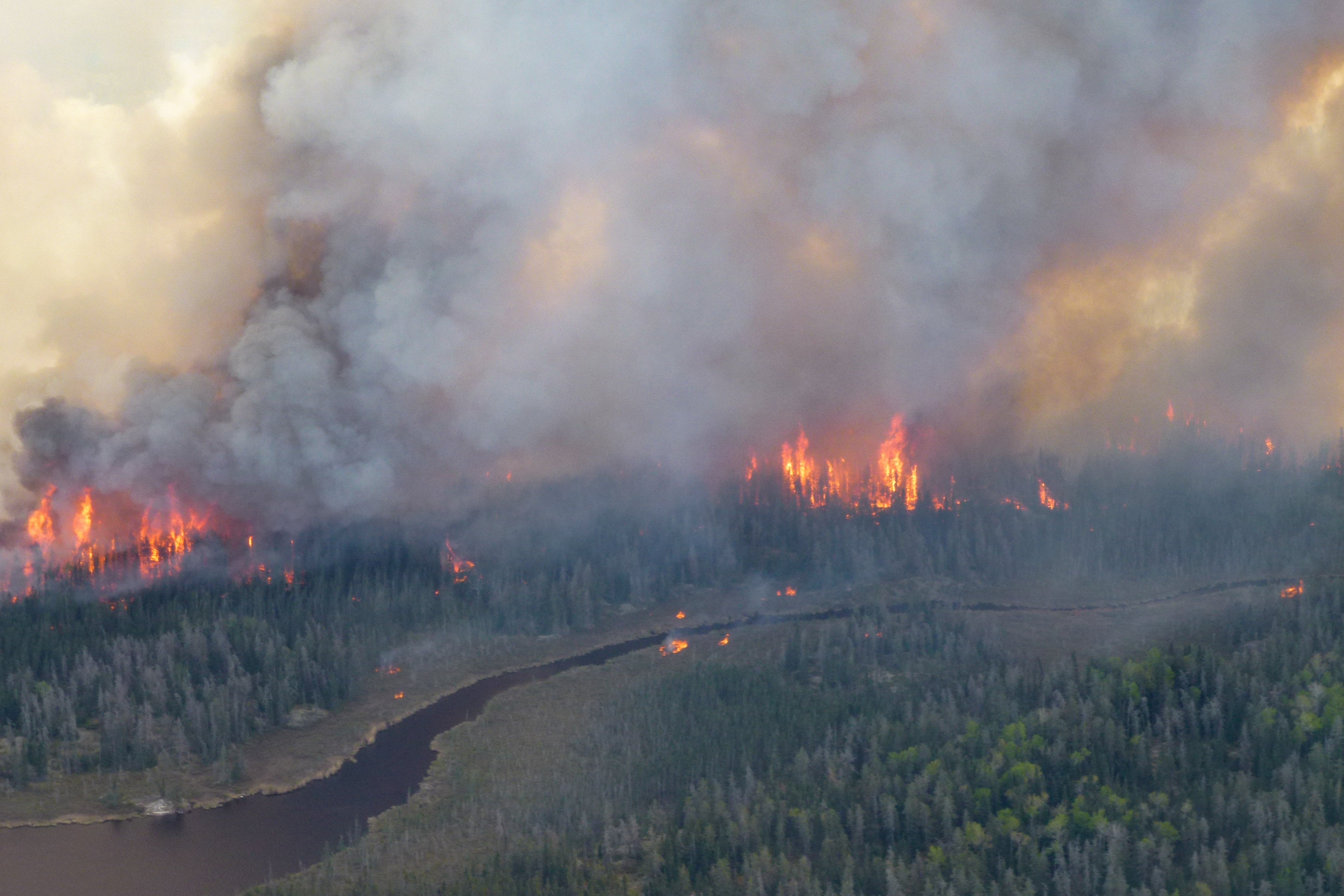ARTICLE AD BOX
As the Canadian wildfires continue to rage, some oil production in the country, a U.S. supplier, has been forced to shut down, raising concerns national gas prices may rise.
Around 95 fires were out of control in Canada on Monday afternoon, with more than half burning in the province of Alberta, according to the Canadian Interagency Forest Fire Centre.
Bloomberg reports the fires in Alberta have shut down nearly 350,000 barrels of daily heavy crude oil production, roughly 7 percent of Canada’s oil output.
Patrick De Haan, head of petroleum analysis at GasBuddy, told The Independent that if the oil production shutdown continues, “it could be a bit more problematic to [U.S.] refineries and it could be more impactful to things like gasoline.”


Canada is the fourth-largest oil producer in the world and a major supplier to the U.S. The American Fuel & Petrochemical Manufacturers, a major trade association, said in a blog post from January that 25 percent of crude oil in U.S. refineries comes from Canada.
Refineries need heavy crude oil to run and make petroleum products such as gasoline. The trade association said in another blog post, ”Nearly 70% of U.S. refining capacity runs most efficiently with heavier crude.”
De Haan told MarketWatch in March, “Canada’s oil has always been there, and it’s always been there at a discount.”
![Patrick De Haan, head of petroleum analysis at GasBuddy, told The Independent that if this oil production shutdown continues, “it could be a bit more problematic to [U.S.] refineries and it could be more impactful to things like gasoline”](https://static.independent.co.uk/2025/06/02/17/33/SEI254077496.jpeg)
The fires have displaced thousands and are causing air quality alerts in several U.S. states. The wildfires have now threatened the country’s oil output, potentially affecting the national average gas price, which currently stands at $3.09 per gallon, according to GasBuddy.
Cenovus Energy Inc., a Canadian oil producer, shut down output on May 29, according to Bloomberg. It said Sunday that it expects to resume operations in the “near term.”
Two other Canadian oil producers, MEG Energy Corp. and Canadian Natural Resources Ltd., have also temporarily ceased operations.
De Hann explained in a phone interview with The Independent on Monday that much of the crude oil in U.S. refineries in the Midwest and Rocky Mountains comes from Canada.
“ So, a shutdown in the flow of oil, or at least a partial shutdown in the flow of oil from Canada, could be impactful to refineries down in these regions,” he said.
De Hann said refineries usually have at least several days of crude oil stored, “but if this hit to Canadian oil production continues for potentially more than a week or two, and/or if it worsens in terms of the amount of oil shut in, it could be a bit more problematic to these refineries and it could be more impactful to things like gasoline.”
“ I don't really see any impact to prices, but we will have to see,” the expert added.
De Hann warned since there’s less Canadian oil available, “it's likely narrowing the Canadian crude oil discount that generally we see, but that's not really going to be too impactful to motorists.”
The U.S. still makes 60 percent of its crude oil, according to American Fuel & Petrochemical Manufacturers, and it gets the other 17 percent of its oil from other countries.
What to know about the Canadian wildfires
There were 189 active fires in Canada as of Monday afternoon, according to the Canadian Interagency Forest Fire Centre. Most are in British Columbia and Alberta.
The fires have burned through roughly 1.7 million acres across Saskatchewan and Manitoba, The New York Times reported, citing the center.
Two people were killed in a wildfire that burned through a small Manitoba town, the Times reported.
CBS reported on Sunday that more than 25,000 residents have been evacuated over the fires and smoke was worsening air quality in Canada.
The fires have also caused air quality alerts in Minnesota, Michigan and South Carolina, which remained in place Monday, per NBC News. Pollutants can cause health risks, especially for those with a respiratory disease such as asthma.









 English (US) ·
English (US) ·